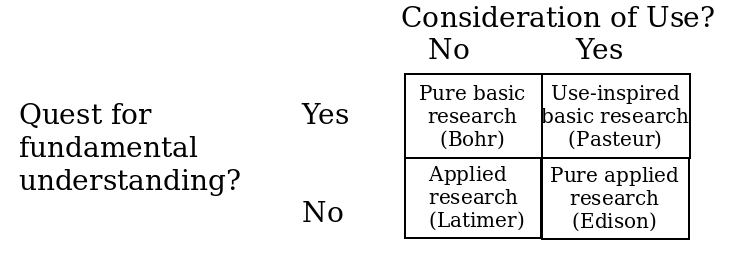- How well do I understand the requirements at the beginning of the project? Is my understanding likely to change significantly as we move through the project?
- How well do I understand the architecture of my program? Am I likely to need to make major architectural changes midway through my project?
- How much reliability do I need?
- How much do I need to plan ahead and design ahead during this project for future versions?
- How much risk does this project entail?
- Am I constrained to a predefined schedule?
- Do I need to be able to make midcourse corrections?
- Do I need to provide my customers or management (or teacher) with visible progress throughout the project?
- How much sophistication do I need to use this lifecycle model successfully?
- Spiral Model - breaks a software project up into miniprojects. Each miniproject addresses one or more major risks until all the major risks have been addressed. Risks can refer to poorly understood requirements or architecture, problems in underlying technology, how you're going to code a particular piece of your project. Each iteration moves your project to a larger scale. Each iteration has similar steps:
- Determine your objectives for this iteration
- Identify risks that exist at this level of your project's development
- Evaluate or think about alternative paths or methods you could take
- Develop deliverables for that iteration and verify they are correct. Analyze your results so far.
- Plan for your next iteration, and commit to an approach for the next iteration
- Evolutionary Prototyping - develop the system concept as you move through the project. You may begin by developing the most visible aspects of the system. Evolutionary prototyping is especially useful when requirements are changing rapidly. It's also useful when you're unsure of the optimal architecture or algorithms to use. Disadvantage - it's impossible to know at the outset of the project how long it wll take to create an acceptable project. You don't know how many iterations you'll have to go through. But, steady signs of progress can be seen, that's good.
- Staged Delivery - you show software results in successively refined stages. Unlike evolutionary prototyping, when you use staged delivery, you know exactly what you're going to build when you set out to build it.
- Evolutionary Delivery - straddles the ground between evolutionary programming and staged delivery. You develop a version of your product, show it to your "customer", and refine the product based on customer feedback. How much evolutionary delivery looks like evolutionary prototyping depends on the extent to which you plan to accommodate customer requests. If you plan to accommodate most requests, evolutionary delivery will look a lot like evolutionary prototyping. If you plan to accommodate few change requests, evolutionary delivery will look a lot like staged delivery.
- For more detail - see the chart Rapid Development, p. 156
Examples of modern terminology:
- Scrum - an iterative, incremental process for developing any product or managing any work. It produces a potentially shippable set of functionality at the end of every iteration. more information, also see wikipedia site
- Agile - "Individuals and interactions over processes and tools", wikipedia info
- Extreme Programming - also known as XP (not Windows XP!), wikipedia info..."Like other agile methodologies, Extreme Programming differs from traditional methodologies primarily in placing a higher value on adaptability than on predictability."
- Answer, part 1:
- Basic research - pursued for the sake of fundamental understanding but without thought of use.
- Applied research - pursued to convert basic understanding into practical use.
- These two classifications above can break down in the real world because "basic" discoveries often emerge from "applied" or "developmental" activities:

which leads to...
- Answer, part 2. In Pasteur's Quadrant (1997) Donald Stokes distinguishes four types of research:
- Pure basic research, performed with the goal of fundamental understanding (such as Bohr's work on atomic structure)
- Use-inspired basic research, to pursue fundamental understanding but motivated by a question of use (Pasteur's work on biologic bases of fermentation and disease)
- Pure applied research, motivated by use but not seeking fundamental understanding (such as that leading to Edison's inventions)
- Applied research that is not motivated by a practical goal (such as plant taxonomy or cladistics and computational paleontology - Latimer)

- Posing a testable question that reasonably attempts to add new knowledge or a new application of existing knowledge to a field.
- Using a specific test design* to systematically collect data.
- Analyzing data by employing appropriate mathematical or algorithmic tools to reach objective and verifiable conclusions.
- Communicating findings logically, clearly, and thoroughly in appropriate venues.
*The test design should clearly attempt to either
(a) reduce alternative explanations/variables or
(b) assess the relative performance of the product or technique under conditions of use. Performance testing is often informal, reiterative, and embedded in the development process.
- Input(s) - try to test a variety of kinds of inputs:
- Algorithms/routines you're using and learning (you can paste in code and explain):
- Types of output you expect, what do you expect the program to do for this iteration?
- Tests - how are you validating the success or failure of this iteration. What pieces of code, functions, classes, algorithms are you checking and what specific tests are you doing? How are you analyzing your results at this point?